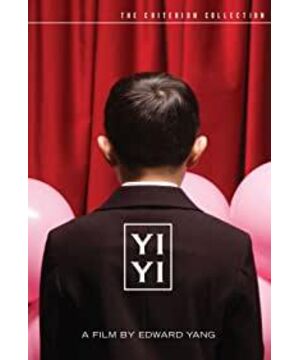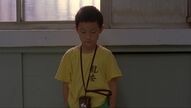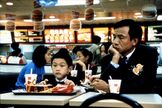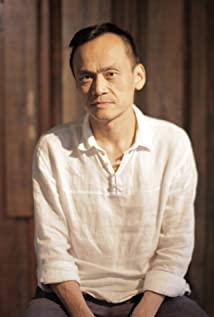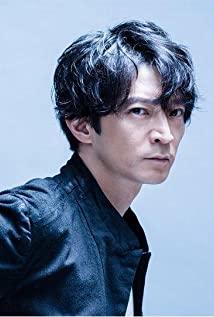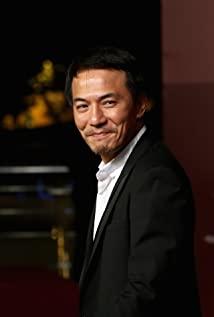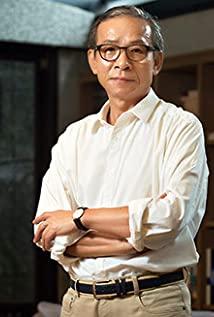In recent years, Standard Collection (CC), a well-known American video disc distributor, has successively released Blu-ray discs of "Childhoods" (1985) and "The Murder of a Teenager in Guling Street" (1991) directed by Yang Dechang.
For the DVDs released by the standard collection, the collection of tidbits is a major feature. Among them, the director's commentary soundtrack is often the most valuable "tidbits".
It's a pity that we won't be able to hear the commentary tracks that Yang Dechang recorded for "Childhood" and "Guling Street Teenage Murder". But more than ten years ago, when Standard Collection released "Yi Yi" directed by Yang Dechang, it invited Yang Dechang and British Asian film expert Tony Ryan to record two commentary tracks for the film, one commented by Yang Dechang alone, and the other one. Conversed by Dechang Yang and Tony Ryan.
These two commentary tracks are very precious and can be said to be one of the most important "documents" for the study of Yang Dechang's films besides the film itself.
The commentary soundtrack I listened to refers to the commentary soundtrack that Yang Dechang recorded alone for the film "One One".
The two commentary tracks were recorded in English, and my so-called "listening" also largely relies on Chinese subtitles translated by a domestic disc dealer.
There are always omissions or misunderstandings in translation. If the following quotations are wrong or taken out of context, you are welcome to correct them.
1. NJ (Jian Nanjun)
Yang Dechang worked in high-tech companies in Seattle, USA, and he has many former colleagues who are still working in related industries today (at the time of filming). The character prototype of the male protagonist NJ is his former colleague.
2. Urban vision created by glass reflection
In general, reflections on glass are something that filmmakers should avoid, as it is easy to "wear through".
But "Yi Yi" is not afraid of "wearing the gang", because it was filmed in the current Taipei.
Through the glass, we saw the bustling Taipei, we saw the shining Taipei, and we also saw the cultural landmark of Taipei, Eslite Mall.
After tasting the broad and rich vision brought by the glass reflection, Yang Dechang repeated his old trick again and again in the later shooting.
When shooting the hotel where NJ stayed in Japan, Yang Dechang also made the Japanese street scene map onto the floor-to-ceiling glass of the hotel room. Also, this saves the cost of the set while gaining more "space".
After NJ fell ill at home, when his daughter Tingting took care of him, we also saw through the glass, and on the glass was the endless night of Taipei.
3. 30-year-old Taiwanese who want to succeed quickly
The millennium is approaching, and Taiwanese society is full of unease and restlessness at the end of the century.
For example, NJ's brother-in-law and others, they all yearn for quick success.
4. Japan's Shadow City - Taipei
Japan has ruled Taiwan for 50 years, 50 years, two or three generations. There are so many things that can be changed and left behind.
By the time the film was filmed, although more than half a century had passed, the streets of Taipei still had the shadow of Japan.
5. The comatose grandmother became a tree hole in the family
The comatose grandmother's character, as well as her tree-hole "feature", was inspired by the car accident of Yang Dechang's friend's father.
An impermanent accident caused NJ, Minmin, and Tingting, who were emotionally broken, to find a "tree hole" to talk to.
6. Tingting is a student of Peng Kaili
In the film, NJ and Minmin's daughter, Tingting, is a piano girl.
Li Kaili, who plays Tingting, is Yang Dechang's wife and a student of pianist Peng Kaili.
The track she played in the film was "Summer Time".
7. Humans have always been its captives
It is technology.
"Humans are its captives until it can actually help humans."
As a former computer engineer, Yang Dechang is not anti-technology, he is just reflecting on the possible consequences of technology. He is particularly worried about the future of computer games.
8. The protagonist of "Mahjong" becomes the background
Mahjong (1996) is a work by Yang Dechang before the filming of Yiyi, which tells the stories of several young people.
These young people also appeared in "Yiyi", but the audience may not have noticed, because the "role" they played is the "background"!
9. Three cameos of Yang Dechang
For the first time, he acted as the boss of the photo studio, without showing his face, only with his voice.
The second time, Yang Dechang played a passerby walking into an elevator with a newspaper in his hand.
The third time, at the concert, Yang Dechang played the piano and his wife Peng Kaili played the violin.
10, 30% unknown part
Yang Dechang is not the type of director who strictly executes scripts or storyboards, and since about the mid-80s, he has left out about 30% of the unknown parts during filming.
Yang Dechang mentions this 30% twice in the commentary track.
"The importance of the location cannot be ignored. Only when the location is found can there be actions and lines. ... There are 30% unknown and adjustable things in the script, and unknown possibilities can be developed when shooting."
"Storyboards limit what my colleagues can do. Shooting is one way of writing, and editing is another. That's why I keep 30 percent of the unknown. If I have everything planned in advance, it's actually Limit your own play and other possibilities."
11. Changes in the business society
"The traditional business society relies on luck, superstition, and interpersonal relationships rather than social contracts."
With the advent of the information age, the law has become more and more perfect, and the importance of the social contract in the commercial society has become more and more prominent. Taiwan was also in a historical period of change.
12. Wait for the cloud to arrive, wait for the real rain
Akira Kurosawa's persistence in "waiting for the cloud to arrive" has become a beautiful talk in film history.
When Hu Jinquan was filming, he was also critical of the weather and light requirements.
Yang Dechang will be so true. The heavy rain scene in the film could have been filmed by artificial rain, but Yang Dechang just had to wait until "real rain"!
13. The three most important moments in life
The marriage at the beginning, the birth of the child in the middle, and the death of the mother-in-law at the end are the three most crucial "ceremonies" in life.
Yang Dechang did not perform these three "ceremonies" completely in the "order of appearance", but it did not damage the "life structure" of the film.
14. Full Moon Banquet
The class reunion at the Full Moon Banquet eventually turned into a farce.
This farce was largely the free play of "classmates", and it actually produced the effect of a fake drama.
15. Tingting's green school uniform
In the film, Tingting wears that particularly conspicuous green school uniform most of the time.
This school uniform is the school uniform of the famous Taipei No. 1 Girls' Senior High School.
Beiyi Girls' High School is a star high school in Taiwan. Only girls with top grades can be admitted to this high school.
16. Yang Dechang looks at Japan
"Japanese people are workaholics, and when night falls, all the office lights are on."
Through NJ's rendezvous with his ex-girlfriend, Yang Dechang deliberately shot a lot of street scenes in Japan, and also shot the scene of a train passing by, which is related to his railway complex (Taiwan's entire society has a railway complex, just look at the Pingxi Line) and childhood memories.
17. The real world is more magical than the fantasy world
Yang Dechang's films always focus on the real world, but the real world under his lens is indeed full of magic.
"Fantasy worlds are limited by the author's imagination, while real life is always full of more wonderful things."
Yang Dechang cited the example of Michael Jordan, who did wonders in basketball.
Yes, the real world can always surpass people's imagination.
18. Hotel room mirror
When NJ made a phone call at a Japanese hotel, Yang Dechang made use of the full-length mirror in the room according to local conditions - he aimed the lens at the mirror.
After NJ finished the phone call, he got up and left the bedside, and Yang Dechang's camera also panned. Yang Dechang once again obtained more "space" and richer connotations in the room that is not spacious.
19. The privacy of music appreciation
When NJ is at home alone, he listens to music and thinks.
"Listening to music is a solo enjoyment that's hard to share."
20. Ocean's Pool Adventure
"We live in the world without thinking about the dangers of our own thoughts, and we all grew up this way."
21. Tingting tried to reconcile with the boy, but was abused
"We always hope that life is as good as we imagined, but we are always disappointed like Tingting."
22. "Because you can't see it, I'll show it to you."
When my uncle came to the house, Yangyang took out the picture he took of the back of his uncle's head and showed it to him.
Uncle doubted, Yangyang said the above lines.
"Maybe I'm more like this boy," Yang Dechang said.
Curious and "insighted" into the world is Yang Dechang's self-projection.
23. The movie tripled the lifespan
After the couple watched the movie, the boy quoted his uncle's "famous saying": "After the invention of the movie, human life has been extended at least three times longer than before."
Each of us has gained more life experience from movies.
After the murder, Yang Dechang mentioned "triple life" again in the commentary track: "If we have a movie, we will live three times longer, which includes violent parts."
A "triple life" is not necessarily a "good life", it also includes painful experiences.
24. Cinema is the best place to watch movies
"I've discussed with students that movie theaters are the best place to watch movies, and watching a movie at home is easily interrupted by the reality that you're trying to escape."
Therefore, it is not difficult for us to understand Yang Dechang's "exploding" behavior when he saw reporters disturbing the audience watching a movie and rushed over to kick him.
25. Chinese women are in power behind the scenes
"Chinese men dominate the society, but the balance behind it is not like that. In fact, in China, women are in power behind the scenes. . . . Chinese women are very strong."
In the commentary track, Yang Dechang mentioned the "powerful" Chinese women twice. He believes that the Western world does not really understand China's family structure, and the status of Chinese women is not as low as they understand.
26. NJ and Minmin have a heart-to-heart in the room
In this scene, Jin Yanling (played by Minmin) did not read the lines according to the script, but immersed in the situation and improvised, so that 30% of the unknown got unexpected results.
"(This scene) shows my view of marriage. Only by understanding each other can we share everything."
27. Grandma's Funeral
"It was an unusual and unconventional funeral. Traditional Chinese funerals are exaggerated and organized. This is a school, and my grandmother was a teacher. Compared with other traditional funerals, this is a simple funeral."
28. It's just a movie about life
"There are a lot of comments that the movie is about a family crisis, I don't think it's that complicated, it's just a movie about life, and every family member is involved."
29. The connections of Domineering President Yang Dechang
After drifting away from "Taiwan New Film" colleagues such as Hou Hsiao-hsien, Yang Dechang established his own "circle". His team, his relatives and friends, his students, and his chance encounters became his contacts inside and outside the film.
The actors in "Yi Yi" used almost all of Yang Dechang's contacts, and many of his relatives, friends and students made cameo appearances in the film.
This is my third time watching "One One".
For the first time, I watched it alone, and was amazed at how constant "life" was.
The second time, I watched it with many people in the book bar. The three-hour "life" seemed trivial, but it was completed in one go, without any sense of redundancy.
The third time, I listened to Yang Dechang's commentary soundtrack and watched the corresponding Chinese subtitles, and the movie became the "background".
After three brushes, I am more certain that "Yi Yi" is the kind of film that is often watched and new.
I'll watch it for the fourth and fifth time...
I'll also write another one titled "I finished listening to the commentary track that Yang Dechang and Tony Ryan recorded for <11>".
View more about Yi Yi: A One and a Two... reviews


